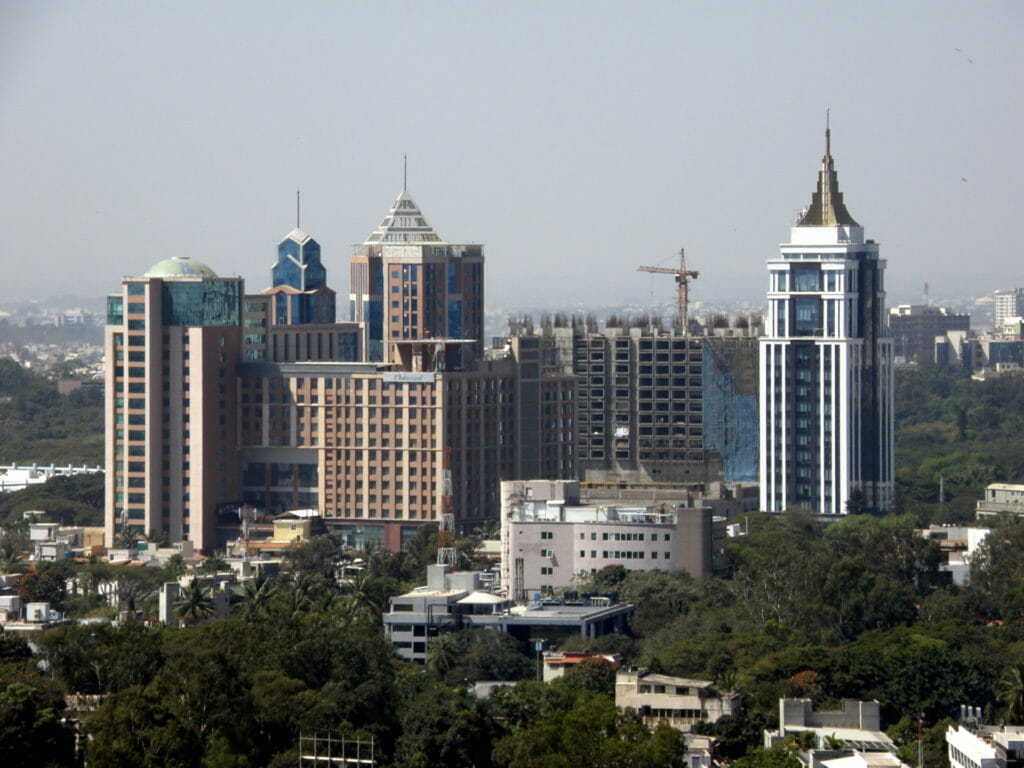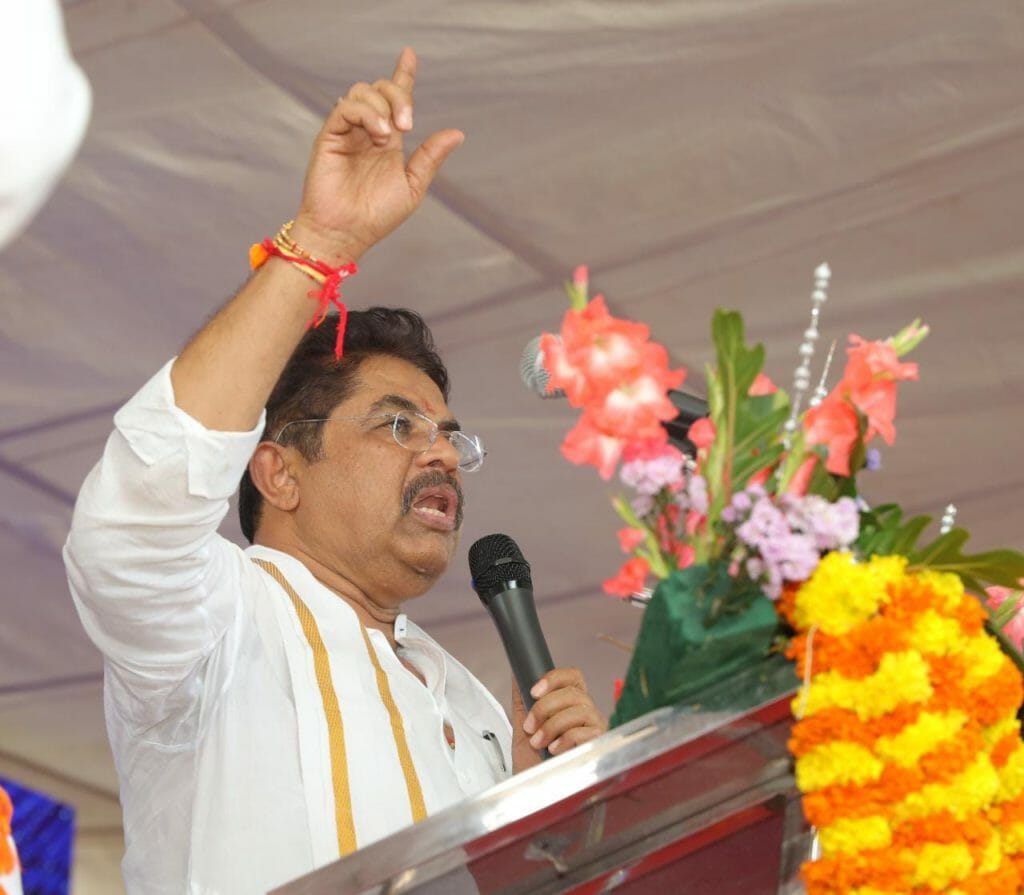The Karnataka government’s Akrama Sakrama scheme to regularise illegal construction has been opposed by much of Bengaluru’s civil society over the years. They had taken the issue to court and got a stay on the same. Even as it looks like the state government is planning to revive the scheme, most civic groups are keen on not letting violators go scot-free.
The history of BDA’s controversial scheme – Akrama Sakrama
As illegal construction in the city became rampant and successive governments and BDA came under increasing criticism for failing to curb this, the Karnataka government announced the Akrama Sakrama scheme in 2015 in an attempt to regularise unauthorized buildings in the state.

This scheme was strongly resisted by civic groups who, in 2017, filed a petition in the Supreme Court against it, citing dilution of town planning norms. The Apex Court granted a complete stay on the scheme and allowed the petition to be converted to a civil appeal.
But that has not deterred different governments from attempting to revive and implement the scheme. The latest such attempt has come in the form of one of the key petitioners of the 2017 appeal to the SC, softening their stance against the scheme. Even as chief minister Basavraj Bommai chaired a meeting of senior civic officials in the first week of July and directed the urban development department to seek legal opinion on petitions pending in the SC against the Akrama Sakrama scheme.
Questioning the functioning of BDA
The Bangalore Development Authority (BDA) was set up in 1976 to ensure the development of Bengaluru in a planned manner. Its creation of quality infrastructure, provisioning of sites or services and catering to the housing needs of the underprivileged, has rarely been without controversy. From allotment of sites for residential and commercial use to curbing illegal constructions, the BDA’s decisions have often been challenged in the courts.
To give just one example, between 1980 and 1990, nearly 2382 cases were registered against the development body. The ruling in nearly 900 of these cases were in favour of BDA. But despite having the authority of the courts on their side, the BDA failed to take timely action between the issuance of eviction orders and its execution, leading to the growth of ‘unauthorized constructions’, as author Janaki Nair explains in her book The Promise of the Metropolis.
Petitioner changes stance on Akrama Sakrama
BJP member of Parliament Rajeev Chandrashekhar, one of the influential backers of the Namma Bengaluru Foundation which had filed the 2017 petition, had then hailed the SC order as a “major win and dawn of the symbol of hope and triumph”. The MP, who through a post on his website, had stated that his main contention with the Akrama Sakrama scheme was that it did nothing to support the urban poor and is a mere tool to legalise all illegalities or erring builders, also claimed that he would not allow “builders and their friends in politics and Govt to run Bengaluru.”
Now, years later, the Foundation has altered its stance by diluting its opposition against Akrama Sakrama. In a letter dated July 19th addressed to Chief Minister Basavraj Bommai, the not-for-profit foundation relayed that it has no objections to the scheme as long it benefits the poor and middle-class. Clarifying their stance on the matter, NBF added that the government should “punitively penalise erring builders and officials with vested interests.”
“We still believe that large and commercial buildings have to adhere to the law,” said Vinod Jacob, General Manager of NBF. “We have been working with all petitioners and we need insights on how to provide a balanced view of the scheme in order to help the poor.”
However, Citizen’s Action Forum, another civic group and petitioner, that has been at the forefront of resistance against the scheme has voiced their discontent with NBF. “CAF has an independent Special Leave Petition and irrespective of what the other petitioners do, we are represented in the SC as an independent facility, and we will stick to our concerns,” said Vijayan Menon, President of CAF. Menon also mentioned that NBF made its stand public without consulting other petitioners, but this doesn’t deter CAF’s legal interventions in any way.
Read More: How does Akrama Sakrama affect you?
Akrama Sakrama: In conflict with the Constitution
In a 2016 post detailing the misgivings of Akrama Sakrama, the Centre for Law and Policy Research (CLPR) highlighted how the reintroduced scheme could pose “disastrous consequences for town-planning and development across the state” as the proposed regularisations are in conflict with constitutional mandates. Article 234W regulates urban development and authorises penal action against illegal and unauthorised constructions as they violate developmental plans formulated by Municipal Corporations. But Akrama Sakrama seeks to regularise these violations of the law.
The post further mentions that regularisation provisions create an environment of intentional violation of the law and harm the ordered development of urban areas. Echoing this, Vijayan says that the scheme was devised in such a way that large lawbreakers and violators were given a free pass while the burden of regularisation fell on the middle and lower-income classes.
Vijayan illustrates this with an example: if an apartment was considered unauthorized, then as per the scheme the owners of the apartment had to pay the regularisation fee, while the builder who violated the law in the first place would walk scot-free.

Vijayan dismisses Revenue Minister R Ashok’s promise to exclude commercial buildings from the purview of Akrama Sakrama, as a mere “poll promise” and that he doesn’t see the scheme going through any legal scrutiny to hold the offenders accountable.
No mechanism for accountability
“The government maintains that 90% of the buildings in Bengaluru have violations so it is not possible to take action so they have to be regularised,” claims Nitin Seshadri, President of Koramangala Residents Welfare Association. “Who turned a blind eye to the violations in the first place? What procedure is in place to take action against these officials? If we say the poor are going to be benefitted, who is ensuring that?”
An institutional mechanism that will prevent future violations such as these and hold those responsible to account, is missing in the government’s narrative, civic groups say.
As per Vijayan, the current scheme favours the violators. “We at CAF have acknowledged that some form of regularisation is necessary as long as it is done with appropriate checks and balances,” says Vijayan. “We also demand that the neighbours’ consent be made integral to all regularisations”.
The government’s sudden interest in reviving Akrama Sakrama is no doubt the looming elections to the Bengaluru municipal council as ordered by the Supreme Court. Even as civic groups opposing the scheme continue their legal fight against it.